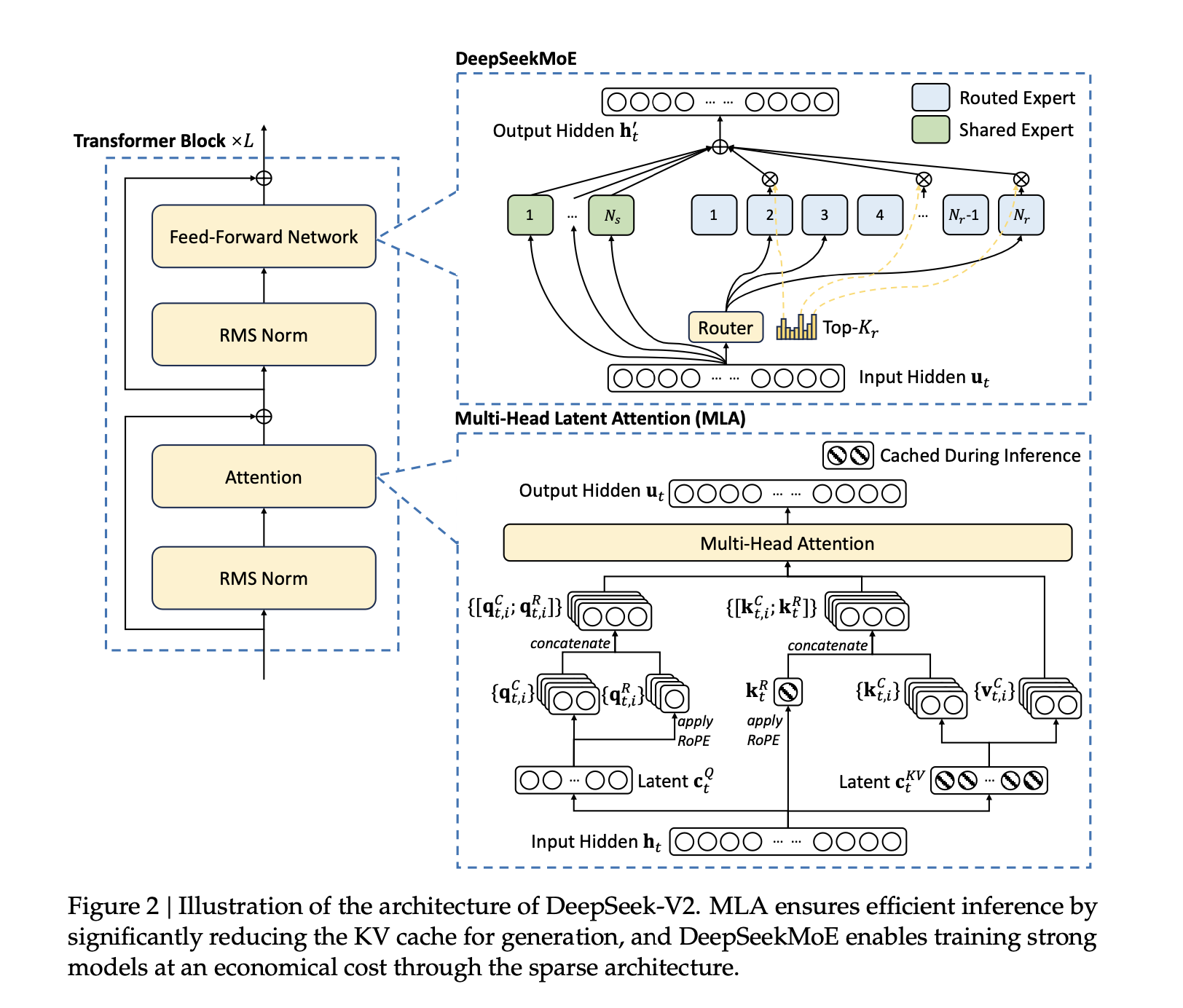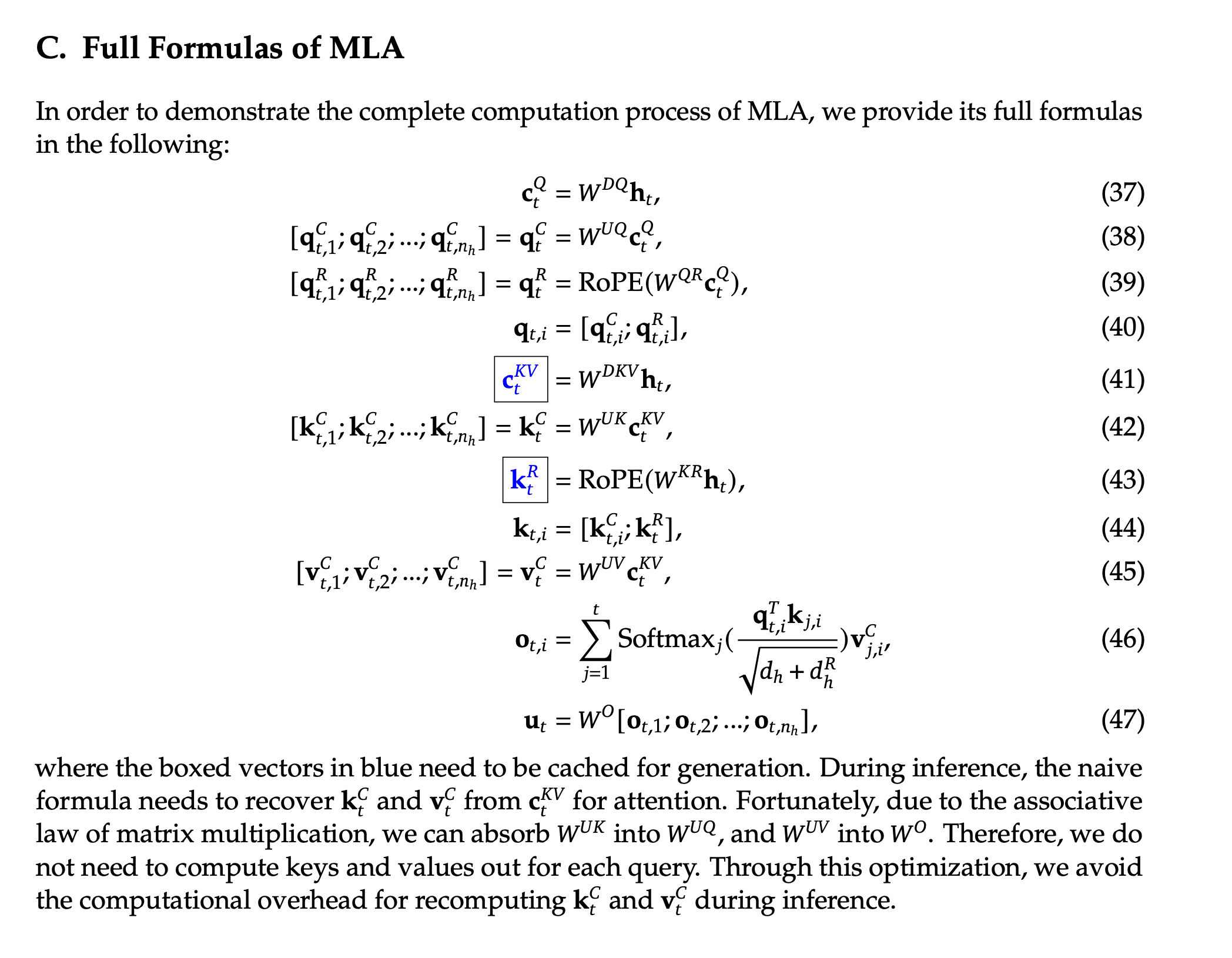DeepSeek Multi-Latent Attention
This repository provides a PyTorch implementation of the Multi-Head Latent Attention (MLA) mechanism introduced in the DeepSeek-V2 paper. This is not a trained model, but rather a modular attention implementation that significantly reduces KV cache for efficient inference while maintaining model performance through its innovative architecture. It can be used as a drop-in attention module in transformer architectures.
Key Features
- Low-Rank Key-Value Joint Compression: Reduces memory footprint during inference
- Decoupled Rotary Position Embedding: Enables efficient position-aware attention
- Optimized Cache Management: Handles both compressed KV states and rotary embeddings
- Cross-Attention Support: Works for both self-attention and cross-attention scenarios
Installation
Clone this repository:
git clone https://huggingface.co/bird-of-paradise/deepseek-mla
Or download directly from the HuggingFace repository page.
Quick Start
import torch
from src.mla import MultiHeadLatentAttention
# Initialize MLA
mla = MultiHeadLatentAttention(
d_model=512, # Model dimension
num_head=8, # Number of attention heads
d_embed=512, # Embedding dimension
d_c=64, # KV compression dimension
d_c1=64, # Query compression dimension
d_rotate=32, # Rotary embedding dimension
)
# Input sequence
x = torch.randn(2, 10, 512) # [batch_size, seq_len, d_model]
# Forward pass
output = mla(x)
Testing
To run the test suite, execute the following command from the project root directory:
python -m src.tests.test_mla
Architecture Details
MLA combines two key innovations:
- Low-rank compression pathway for efficient KV caching
- Decoupled position-aware pathway using RoPE
For detailed architectural insights, see insights/architecture.md.
Caching Behavior
During inference, MLA maintains two caches:
cache_kv: [batch, max_len, d_c] # Compressed KV states
cache_rk: [batch, max_len, d_r] # Shared rotary key
For detailed insights on attention masking and caching, see insights/attention_mask.md.
Usage Examples
Basic Attention
# Standard self-attention
output = mla(sequence)
# Cross-attention
output = mla(query, key_value_states=context)
Cached Generation
# Initial forward pass
output = mla(prompt, use_cache=True, start_pos=0)
# Generate tokens using cache
for i in range(max_new_tokens):
output = mla(next_token, use_cache=True, start_pos=prompt_len + i)
Implementation Details
The implementation closely follows the formulation in the DeepSeek-V2 paper:
Key aspects:
- Separate compression pathways for queries and key-values
- Position encoding through decoupled RoPE pathway
- Efficient cache management for both pathways
Contributing
Contributions are welcome! Feel free to:
- Report bugs and issues
- Submit pull requests for improvements
- Add additional test cases
- Provide documentation clarifications
Please ensure all tests pass before submitting pull requests.
Citation
@misc{deepseek2024,
title={DeepSeek-V2: A Strong, Economical, and Efficient Mixture-of-Experts Language Model},
author={DeepSeek-AI and et al.},
year={2024},
journal={arXiv preprint arXiv:2405.04434}
}

